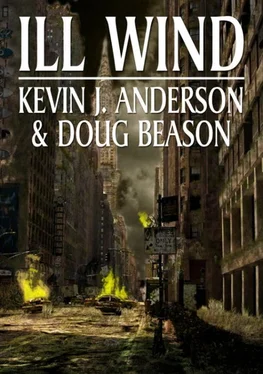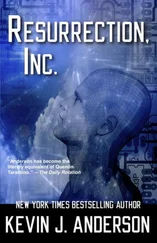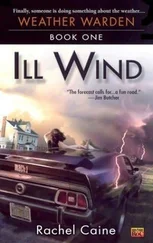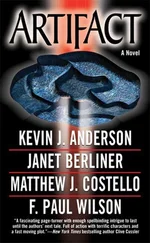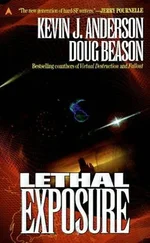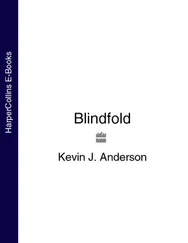In one intersection, two business-suited men pushed a car out of the street toward a gas station. Todd wondered if everyone had gone wacko… or crazier than usual. Maybe the fumes from the oil spill were causing brain damage.
When he reached the courthouse, an imposing white structure that looked exactly like a movie-lot version of a hall of justice, Todd found a place to park with surprisingly little difficulty. He wondered if part of the workforce had stayed home; was today one of those weird government holidays celebrated only by banks, post offices, and nobody else? He checked his Timex again; his hearing was scheduled to start in six minutes.
Todd and Alex had separate hearings, separate lawyers, all paid for by Oilstar. The Oilstar lawyers were probably pissing their pants right now waiting for him. Todd had no desire to show up late and be slapped with contempt charges. He slammed the door of his Ford and began jogging along the sidewalk to the large judicial building. His cowboy boots clomped on the concrete.
Inside, striding down an echoing courthouse hallway that had dozens of doors on each side, he turned the wrong way before he managed to locate the hearing chamber. People were lined up in the halls, arguing with various officials and guards. Some seemed incensed about sudden cancellations. Todd self-consciously combed his sweaty hair, swallowed, and hurried through the swinging door. When he stepped into the room, he paused, breathless and puzzled.
Bare beige walls, theater-like seats, and pale wood accented the chamber. The judge’s desk was empty, though, and even the lights were not fully turned up. Two security guards spoke in low tones at the front of the room; one wore a blue turban. An old man slouched in the back of the chamber, wearing a tan trenchcoat and working on a crossword puzzle.
“Where the heck is everybody?” Todd said. He remembered the ominous words in his arrest warrant: “Reckless endangerment of human life and property; illegal dispersal of a possible toxic substance; disregard for public safety.” Had his hearing been canceled, or rescheduled? Why hadn’t anybody let him know? Where were the Oilstar lawyers?
The guards looked up as he approached. “Can I help you?” The blue turbaned towel-head was dressed in a crisp brown uniform, a gold badge, and a nametag that read ORENIO.
“I’m here for the hearing. What’s going on?”
Orenio shrugged. “A lot of cancellations this morning, sir. Didn’t you see what’s happening on the streets?”
“I thought you all would be used to traffic by now.”
“Never been this bad, no,” Orenio said. He looked Todd up and down, taking in the cowboy boots, polyester slacks, and bolo tie. “It is a mess out there.”
Todd frowned. “What about my arraignment?”
“It will certainly be rescheduled. No judge. Where is your own lawyer, sir?”
Todd shook his head in bewilderment. “What a circus!”
Orenio nodded quickly, as if his chin were having a spasm. “Judge called from her car phone to cancel this morning’s hearings—we have had a bulletin out for the past half hour on all stations. Something is very strange out there. Very strange.”
The other guard rolled his eyes as if it were an old argument between them.
Todd wondered if he should fill out a form, leave some sort of record that he had come to the hearing, but the clerks at the windows were swamped, and he had no intention of waiting in line. He hated lines. He just wanted to leave….
Back in his truck, Todd tried to navigate his way to the Bay Bridge as he drove, counting seconds until he could escape from the noise and the smell and the chaos. He had a splitting headache, and he wanted an ice-cold Coors. He passed a young dark-haired man parked in a loading zone, hunched over the steering wheel as he tried and tried to get the engine of his delivery truck to turn over.
Flicking on the radio, Todd caught a fragment of a sentence. The DJ was still talking! Someone had accused Oilstar—oh, brother!—of releasing a bad batch of gasoline that was causing all the cars to stall at once. He supposed that made a certain amount of paranoid sense, since people always wanted a handy, simplistic explanation for all the world’s ills. Maybe ghosts or space aliens had contaminated the gas. Ever since the Zoroaster spill, Oilstar bashing had been a popular pastime for the media.
When the DJ kept talking, Todd switched off the radio and drove in silence toward the Oilstar refinery to check in.
The Manzano mountains at the northeastern end of the Kirtland Air Force Base did little to block the desert wind. Behind the scrubby foothills on a conical volcanic rise, the 11.5-foot diameter telescope was just a blob in the dust storm. Brigadier General Bayclock thought how ironic it was that they were trying to show off a far-seeing observatory, when they could barely see a hundred feet themselves. But the weather didn’t see fit to cooperate with the general’s orders.
On the mountaintop, Bayclock stood stiffly for the cameras, hating every second of the bullshit. No marching band, no sunshine—it was turning out to be a crummy ceremony. Albuquerque Mayor David Reinski and a Department of Energy rep, Lance Nedermyer, hovered behind him.
The star of the show was Speaker of the House Jeffrey Mayeaux, who had flown from Washington, D.C., to observe the ceremony, since technology transfer was one of the Speaker’s pet projects. Mayeaux seemed to be in his element, not bothered by the weather and making the best of the cameras; his attitude impressed Bayclock.
The piss-poor visibility disappointed Bayclock. He had overhauled the base, working all personnel double-time to pick up every scrap of litter, straighten every bush, repaint every building, wax every floor for Mayeaux’s visit—and this damned dust storm had ruined everything.
Mayeaux’s comments for the cameras had sounded as if they were scripted. Bayclock had seen plenty of that rah-rah bullshit in print before. The Speaker somehow managed to shake hands with anyone who passed within striking distance. He smiled so much his teeth were probably getting sand-blasted.
The tech-transfer ceremony at the Air Force telescope facility was over, and the dozen official participants, wearing dust-spattered uniforms and suits, shielded their faces. Nedermyer fiddled with a pair of clip-on sunglasses. Local reporters hung around like overgrown puppies.
“This way, Mr. Speaker,” Bayclock said, gesturing toward the minivans that would shuttle them back to the headquarters building. Mayeaux was the highest-level government official Bayclock had ever hosted at the base. The Speaker of the House wasn’t directly responsible for Bayclock’s orders, but reporters fell over themselves to follow the Louisiana politician like circus spectators. He let scandals wash over him as if they were silly challenges.
Lance Nedermyer stood between Bayclock and Mayeaux, looking out of place in his dark suit and wing-tipped shoes. His tie flapped in the wind. He raised his voice much louder than necessary. “The new-technology telescope will be an indispensable part of our research down at White Sands, Mr. Speaker, tracking the smallsats. I apologize that the project director, Dr. Lockwood, couldn’t make the ceremony. Apparently he had other priorities.”
The tracking and logistical support for the solar-power receiving station down at White Sands fell under Nedermyer’s purview. Scientists and jerkoffs , Bayclock thought, all talk and big ideas and never anything tangible to show for it . “The Air Force is also cooperating fully in this venture,” Bayclock added.
“Yes,” Mayeaux said, turning a shrewd glance toward Bayclock. “I was very interested to read about that in the briefing materials, along with some of the top-notch defense work you’re doing here at the base. Your people are concentrating on directed-energy technology now, General? I was most impressed to read about that drone plane you shot down in the 1970s.”
Читать дальше
